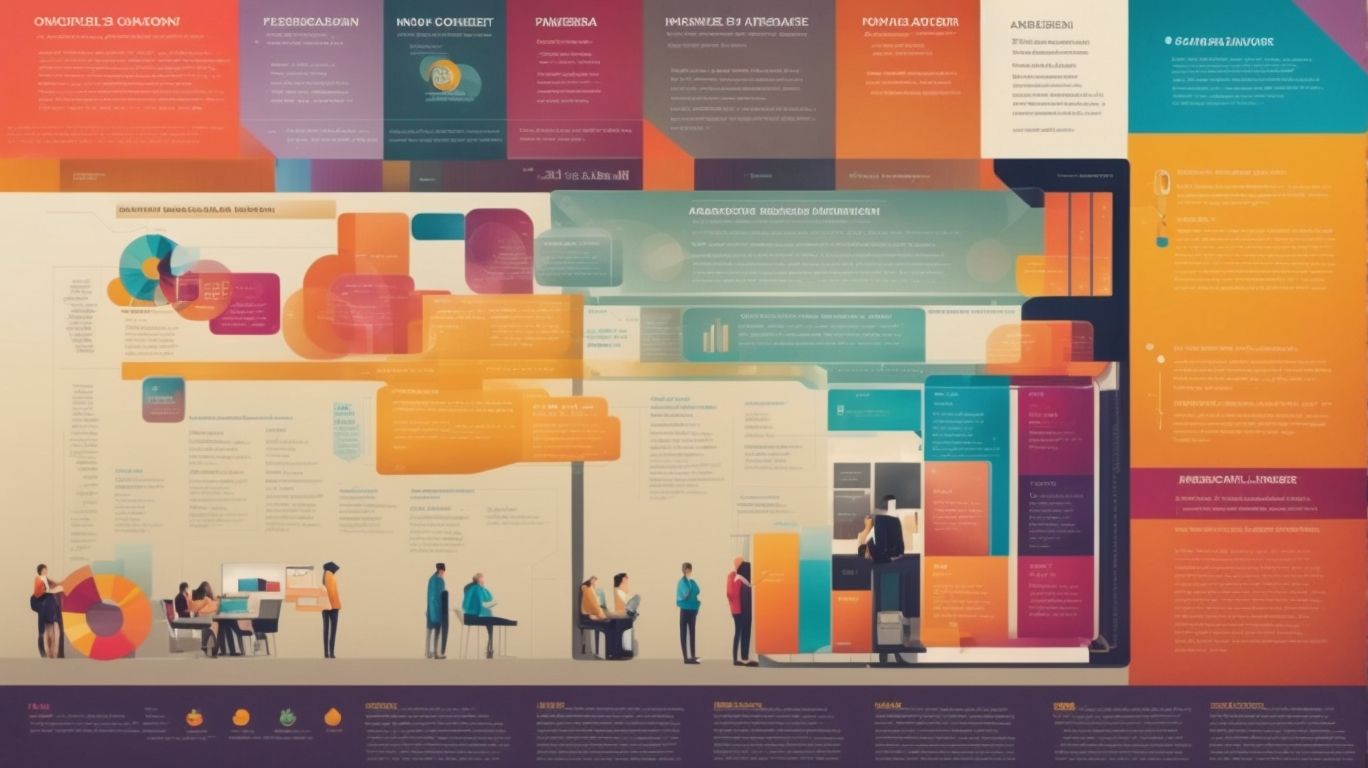Are you a recent graduate with a bachelor’s degree in psychology and feeling uncertain about your career prospects without any prior experience in the field? Don’t worry, you’re not alone. In this article, we will explore the various skills you acquire with a psychology degree, the potential career options available to you, and the steps you can take to gain valuable experience in the psychology field.
Whether you’re interested in human resources, social services, market research, sales, or administration, there are opportunities waiting for you to kickstart your career in psychology.
Contents
- 1 What Can You Do with a Bachelor’s Degree in Psychology and No Experience?
- 2 What Skills Do You Gain with a Bachelor’s Degree in Psychology?
- 3 What Are the Career Options for Psychology Graduates with No Experience?
- 4 What Are the Steps to Gain Experience in Psychology Field?
- 5 What Are the Advantages of Pursuing a Career in Psychology?
- 6 Frequently Asked Questions
- 6.1 What are some career options for someone with a Bachelor’s Degree in Psychology and no experience?
- 6.2 Can I work as a counselor or therapist with a Bachelor’s Degree in Psychology and no experience?
- 6.3 What skills are required to excel in a career with a Bachelor’s Degree in Psychology and no experience?
- 6.4 Are there any entry-level jobs in the field of Psychology that I can apply for with a Bachelor’s Degree and no experience?
- 6.5 Can I pursue a graduate degree in Psychology with only a Bachelor’s Degree and no experience?
- 6.6 What steps can I take to gain experience in the field of Psychology with only a Bachelor’s Degree?
What Can You Do with a Bachelor’s Degree in Psychology and No Experience?
A Bachelor’s Degree in Psychology opens up various career opportunities even for individuals with no prior experience in the field. Graduates can explore entry-level positions in diverse industries that value the analytical and interpersonal skills acquired during their academic journey.
One of the key strengths of a psychology degree lies in its versatility across fields such as human resources, marketing, education, and healthcare. Employers in these sectors often seek professionals with a solid understanding of human behavior, critical thinking abilities, and effective communication skills.
- Human resources departments frequently welcome psychology graduates for roles in recruitment, employee relations, and training programs.
- In the marketing realm, understanding consumer behavior and motivation is crucial, making psychology graduates valuable assets in market research and consumer insights.
- Education institutions benefit from individuals with psychological knowledge in student counseling, special education, and even curriculum development.
What Skills Do You Gain with a Bachelor’s Degree in Psychology?
Earning a Bachelor’s Degree in Psychology equips individuals with a diverse set of skills essential for various professional roles. These skills encompass critical thinking, effective communication, solid research abilities, and proficient problem-solving capabilities.
These skills acquired through psychology studies are highly adaptable and transferable, making psychology graduates valuable assets in industries such as marketing, human resources, education, and social services. For instance, in a marketing role, the critical thinking skills learned in psychology can aid in analyzing consumer behavior patterns and developing targeted campaigns. The research abilities gained can help in conducting market research effectively.
Similarly, in a human resources position, the communication skills honed during a psychology degree are invaluable for dealing with diverse teams, resolving conflicts, and conducting interviews. The problem-solving capabilities nurtured in psychology programs can assist in addressing employee concerns and creating a positive work environment.
Critical Thinking
Critical thinking is a fundamental skill cultivated through the study of psychology, enabling individuals to assess information objectively, analyze complex issues, and make informed decisions based on evidence and logical reasoning.
It plays a crucial role in the field of psychology, where researchers rely on evidence-based reasoning to draw valid conclusions from data. For instance, when conducting experiments or studies, psychologists use critical thinking to ensure the accuracy and reliability of their findings. By applying this skill, they can identify biases, evaluate the quality of research methods, and interpret results with a discerning eye.
In everyday life, the impact of critical thinking is equally significant, influencing decision-making processes in various contexts. Whether deciphering the credibility of information sources, evaluating the validity of arguments, or making choices based on sound reasoning, individuals who employ critical thinking skills are better equipped to navigate the complexities of their environment.
Communication Skills
Communication skills are a cornerstone of success in psychology, enabling professionals to effectively interact with patients, convey empathy, and establish rapport crucial for therapeutic interventions and patient care.
By utilizing active listening and nonverbal cues, psychologists can create a supportive environment for patients to share their concerns openly. For example, in a counseling session, a psychologist can use reflective listening to validate the patient’s emotions and experiences, thus fostering trust and encouraging self-disclosure. Strong communication skills are also essential when delivering difficult news or discussing treatment options, as they can help alleviate anxiety and enhance patient understanding.
In therapeutic settings, effective communication facilitates the development of personalized treatment plans by clinicians and fosters collaboration between patients and healthcare providers. Empathy, patience, and clear communication are key components in addressing the diverse needs of individuals receiving psychological care.
Research Skills
Research skills acquired through psychology education enable professionals to engage in clinical research, develop evidence-based interventions, and contribute to advancements in understanding mental health conditions such as posttraumatic stress disorder.
These research skills are crucial for designing and implementing studies that investigate the root causes, symptoms, and treatment options for mental health disorders. By honing their ability to collect and analyze data effectively, psychologists can uncover valuable insights into the complexities of conditions like posttraumatic stress disorder.
For example, a recent research proposal focused on exploring the impact of trauma-informed care on individuals with PTSD. Through systematic data collection and rigorous analysis, researchers aimed to identify the most effective therapeutic approaches for managing PTSD symptoms.
Problem Solving
Problem-solving skills honed through psychology education enable professionals to address complex challenges in therapeutic settings, develop tailored treatment plans, and devise interventions for diverse mental health issues.
Within a rehabilitation facility, for instance, a psychologist may be faced with a patient struggling with addiction. Through problem-solving techniques like cognitive-behavioral therapy, the professional can identify triggers, create coping strategies, and guide the individual towards recovery. This ability to analyze root causes and implement effective solutions is crucial in fostering an environment that supports the holistic well-being of clients.
What Are the Career Options for Psychology Graduates with No Experience?
Psychology graduates without prior experience can explore entry-level career options in various fields such as human resources, social services, market research, sales, and administrative roles, leveraging their academic knowledge and skills to kickstart their professional journey.
Within human resources, entry-level positions like HR assistant or recruitment coordinator provide a solid foundation for individuals to understand organizational dynamics and employee relations.
In social services, roles such as case manager or community outreach specialist allow graduates to apply their understanding of human behavior to support vulnerable populations.
Market research offers avenues like research assistant or data analyst, enabling graduates to analyze consumer behavior and market trends.
Human Resources Assistant
A Human Resources Assistant role offers psychology graduates an opportunity to apply their interpersonal skills in managing employee relations, addressing staff concerns, and facilitating confidential information handling within the organizational setting.
In this position, a Human Resources Assistant plays a crucial role in handling employee complaints, ensuring that all grievances are addressed promptly and professionally. Effective communication skills are essential for conveying company policies and procedures clearly to staff members and ensuring compliance with regulations. Human Resources Assistants may also collaborate with legal services for guidance on employment laws and regulations, helping with the resolution of disputes while maintaining a fair and equitable workplace.
Social Services Case Manager
Social Services Case Managers play a vital role in coordinating treatment plans, advocating for patient needs, and providing support to individuals facing mental health challenges, aligning with the core principles of psychology centered on patient care and enablement.
These professionals work closely with multidisciplinary teams to ensure that the treatment approach is holistic and tailored to each patient’s unique circumstances. Collaboration is key in their role as they communicate with healthcare providers, social workers, and other relevant entities to streamline services and enhance the overall well-being of their clients.
Market Research Analyst
Market Research Analysts utilize their analytical skills to gather consumer insights, conduct data-driven analyses, and interpret trends, mirroring the research-oriented approach fostered through a psychology education focused on data collection and interpretation.
These professionals play a crucial role in helping companies understand consumer behavior, preferences, and market dynamics. By employing their psychology skills, Market Research Analysts can delve into the underlying motivations behind consumer choices, enabling them to provide valuable recommendations for marketing strategies. Utilizing various data collection methods such as surveys, interviews, focus groups, and observational studies, analysts gather quantitative and qualitative data. Through statistical analysis and interpretation, they transform raw data into actionable insights that guide businesses in making informed decisions. Career Options with a Bachelor’s Degree in Psychology and No Experience
Sales Representative
Sales Representatives leverage their interpersonal skills to build relationships, understand customer needs, and tailor solutions, aligning with the behavioral insights and communication strategies honed through a psychology background focused on understanding human behavior.
Having a deep understanding of behavioral health enables Sales Representatives to approach customer interactions with empathy and insight.
By recognizing nuances in behavior and communication patterns, they can better connect with customers, address their concerns, and provide appropriate solutions.
The knowledge of therapeutic approaches and substance abuse helps in identifying potential triggers or underlying issues that may impact a customer’s purchasing decisions or preferences.
Effective communication skills play a vital role in sales roles, allowing sales representatives to convey information clearly, actively listen to customers, and establish trust and rapport.
Administrative Assistant
Administrative Assistants play a key role in supporting organizational operations, coordinating appointments, and facilitating interventions, reflecting the organizational skills and intervention strategies familiar to psychology graduates transitioning to administrative roles.
One of the primary responsibilities of an Administrative Assistant is to manage and organize research activities, ensuring that data and information are accurately recorded and stored. They handle confidential information with utmost care, maintaining strict confidentiality protocols to protect sensitive data.
Their organizational skills are essential in coordinating appointments, scheduling meetings, and ensuring that all administrative tasks are completed efficiently and effectively. By facilitating interventions, they contribute to the smooth running of daily operations and support the achievement of organizational objectives.
What Are the Steps to Gain Experience in Psychology Field?
Aspiring professionals in the psychology field can gain valuable experience through internships, volunteer work, participation in professional organizations, additional courses, and certifications, all of which contribute to enhancing their practical skills and industry knowledge.
Internships play a vital role in providing hands-on experience in various aspects of psychology, from clinical settings to research institutions. By immersing oneself in real-world scenarios, individuals can apply theoretical knowledge to practical situations, honing their problem-solving and critical thinking abilities. Engaging in volunteer work within community mental health centers or crisis hotlines offers exposure to a diverse range of psychological issues and populations, fostering empathy and cultural competence.
Participation in professional organizations enables networking opportunities with seasoned psychologists and researchers, paving the way for mentorship and collaborative projects. Taking additional courses or pursuing certifications allows individuals to delve deeper into specialized areas such as counseling techniques, neuropsychology, or forensic psychology, broadening their skill set and enhancing their employability.
Internships or Volunteer Work
Engaging in internships or volunteer work allows individuals to gain hands-on experience in psychology, interact with patients, and contribute to treatment initiatives, fostering a practical understanding of mental health practices and therapeutic interventions.
This involvement in real-world settings not only provides a platform for students to apply theoretical knowledge but also helps them develop essential skills such as active listening, empathy, and communication in a clinical environment. By actively participating in patient care under the guidance of professionals, interns and volunteers can witness firsthand the impact of their support on individuals dealing with mental health challenges.
Join Professional Organizations
Membership in professional organizations offers psychology enthusiasts opportunities to network with industry experts, engage in collaborative research projects, and access resources that deepen research experience and expand career horizons.
Through membership, individuals can tap into a vast pool of expertise, gaining valuable insights from seasoned professionals and academics. Networking within these groups opens doors to potential collaborations, funding opportunities, and even avenues for publication of research findings, thereby bolstering one’s professional portfolio. These organizations often host conferences, workshops, and seminars tailored to the needs of members, providing a platform for the dissemination of research proposals and the exchange of innovative ideas.
Involvement in professional organizations exposes members to the latest developments in the field, keeping them abreast of emerging trends and cutting-edge methodologies. This exposure is particularly beneficial for those interested in pursuing clinical research or exploring postdoctoral opportunities as it enhances their understanding of the wider research landscape and helps them stay competitive in the field.
Take Additional Courses or Certifications
Enrolling in additional courses or pursuing certifications in specialized areas such as trauma therapy equips individuals with in-depth knowledge and practical skills, enhancing their expertise and credibility within the psychology field.
These advanced courses provide a deeper understanding of trauma-related issues, interventions, and therapeutic techniques, allowing professionals to offer more specialized and effective care to their clients.
Specialized training in trauma therapy can significantly boost career advancement opportunities, opening doors to positions in trauma centers, hospitals, and counseling clinics.
For instance, certification programs like the Trauma-Focused Cognitive Behavioral Therapy (TF-CBT) or Eye Movement Desensitization and Reprocessing (EMDR) focus specifically on trauma interventions and treatment approaches, offering practitioners a comprehensive skillset to address complex psychological conditions such as Prader-Willi Syndrome.
What Are the Advantages of Pursuing a Career in Psychology?
Embarking on a career in psychology offers numerous advantages, including a wide array of career options, high demand for psychology professionals, and the rewarding opportunity to foster personal growth while positively impacting the lives of others through mental health support and therapeutic interventions.
Psychology professionals play a crucial role in addressing societal issues, promoting mental well-being, and advocating for mental health awareness. The dynamic field of psychology allows individuals to specialize in diverse areas such as clinical psychology, counseling psychology, or organizational psychology, tailoring their career path to align with their interests and passions. From conducting research to providing counseling services, professionals in the field contribute to enhancing individuals’ psychological resilience and overall quality of life.
Variety of Career Options
A career in psychology offers a diverse range of employment opportunities across sectors such as healthcare, social work, public health, research, and legal services, providing professionals with the flexibility to explore different roles and specialties within the field.
Psychology professionals can find rewarding positions in various industries, including education, human resources, marketing, and sports management, where their expertise in understanding human behavior and mental processes is highly valued. For example, in the educational sector, psychologists may work as school counselors or academic advisors, supporting students’ emotional well-being and academic success.
- In the corporate world, psychologists can excel in human resources departments, utilizing their knowledge to enhance employee engagement, team dynamics, and workplace productivity.
- The marketing industry values psychologists for their skills in consumer behavior analysis, market research, and advertising strategies that influence customer decision-making.
- In sports management, psychologists play a crucial role in enhancing athletes’ performance through mental conditioning, stress management, and teamwork strategies.
These examples highlight the broad application of psychology in diverse settings, showcasing the versatility of a career in this field.
High Demand for Psychology Professionals
The field of psychology continues to witness a high demand for skilled professionals adept at patient care, treatment interventions, and research activities, leading to numerous employment opportunities and career growth prospects for qualified individuals.
This demand for psychology professionals can be attributed to the increasing recognition of mental health importance in various sectors including healthcare, education, and corporate settings. Professionals with strong patient care skills are particularly sought after to ensure effective communication, empathy, and support for individuals facing mental health challenges. Advancements in research activities within psychology have opened new avenues for specialization and career development.
Opportunity for Personal Growth and Helping Others
Working in the field of psychology presents professionals with the opportunity for personal growth, continuous learning, and the rewarding experience of making a positive impact on the lives of individuals through therapeutic support, behavioral health interventions, and compassionate care.
Psychologists often delve into the intricate workings of the human mind, helping clients navigate through mental health challenges by utilizing a variety of therapeutic approaches. Through techniques such as cognitive-behavioral therapy, mindfulness practices, and psychoanalysis, they equip individuals with the tools to address underlying issues, manage stress, and cultivate healthy coping mechanisms.
Empathy and active listening form the foundation of meaningful patient interactions, enabling professionals to form trusting relationships and foster a safe space for clients to explore their emotions and experiences.
Frequently Asked Questions
What are some career options for someone with a Bachelor’s Degree in Psychology and no experience?
With a Bachelor’s Degree in Psychology and no experience, you can pursue a wide range of career options such as research assistant, human resources assistant, case manager, social and community service manager, and psychiatric technician.
Can I work as a counselor or therapist with a Bachelor’s Degree in Psychology and no experience?
No, a Bachelor’s Degree in Psychology is not sufficient to become a licensed counselor or therapist. However, you can work as a mental health technician or a rehabilitation specialist with this degree.
What skills are required to excel in a career with a Bachelor’s Degree in Psychology and no experience?
Strong communication, critical thinking, and problem-solving skills, as well as empathy, cultural competence, and the ability to work well in a team are essential for success in careers with a Bachelor’s Degree in Psychology and no experience.
Are there any entry-level jobs in the field of Psychology that I can apply for with a Bachelor’s Degree and no experience?
Yes, there are entry-level positions available in fields such as social services, human resources, and research that do not require prior experience. These roles often provide on-the-job training to help you gain experience.
Can I pursue a graduate degree in Psychology with only a Bachelor’s Degree and no experience?
Yes, you can pursue a Master’s Degree or Ph.D. in Psychology with a Bachelor’s Degree and no experience. However, some programs may require you to have relevant work experience or research experience.
What steps can I take to gain experience in the field of Psychology with only a Bachelor’s Degree?
You can gain experience through internships, volunteer work, or research projects in your field of interest. You can also attend workshops, conferences, and seminars to network and learn from professionals in the field. Additionally, taking on leadership roles in student organizations or completing a capstone project can also help you gain valuable experience.




